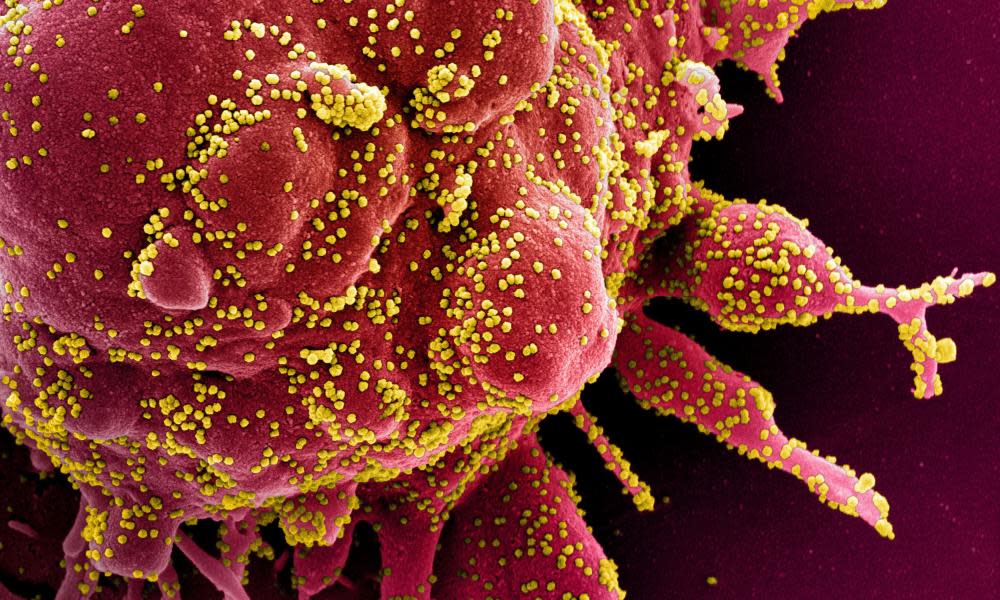Tiny variants in genes may dictate severity of coronavirus

It has been one of the most baffling aspects of the Covid-19 pandemic. Healthy young men and women have become infected with the virus and developed life-threatening side effects. But at the same time, many of their contemporaries have simply shrugged off the condition.
Unknown factors are clearly leaving some people vulnerable to the pandemic’s worst effects even though some of them are young, are not overweight and do not suffer from other obvious health problems. Scientists think that tiny genetic differences are causing some to be struck down while many others are spared.
And these differences in DNA are now being tracked by researchers who believe they offer a route to developing new drugs that could halt many of the worst consequences of suffering from Covid-19.
Key developments include research which indicates that interferon – a molecular messenger that stimulates immune defences against invading viruses – may play a vital role in defending the body. Scientists have found that rare mutations in some people may leave them unable to make adequate supplies of the interferon they need to trigger effective immune responses to Covid. Trials using interferon as Covid treatments are now under way at several centres.
“These genetic findings give us very clear insights,” said Martin Hibberd, professor of emerging infectious diseases at the London School of Hygiene and Tropical Medicine. “They are natural biological experiments which suggest that people who make more interferon when infected have a better response to the disease. And that in turn tells us that patients could well benefit from treatment with interferon.”
Research is also focusing on a gene known as TYK2. Some variants of this gene are involved in triggering some auto-immune diseases such as rheumatoid arthritis (RA) and also seems to be involved in causing severe Covid. A drug developed to treat RA, baricitinib, has a genetic common denominator with Covid and this has led to it being used in clinical trails against the virus. Last month the pharmaceutical company Eli Lilly announced that early results showed the drug helped Covid patients recover.
“The crucial point is that by understanding the impact of gene variants in the body we can now think about finding drugs that could block their pathways and help patients,” said Jeffrey Barrett, of the Wellcome Sanger Institute’s Covid-19 genomic surveillance programme. “The bad news is that it can take years of experiments to find treatments this way. The good news is that there are now so many scientists working on this kind of thing that we might still some quick answers.”
Other research – pioneered by Kenneth Baillie, of Edinburgh University, and outlined in a recent issue of Science – has uncovered several other genes that appear to be important. These include OAS genes that are triggered by interferon and which code for proteins that are involved in breaking down viral RNA, from which the Covid-19 virus is made. Baillie’s research has yet to be peer reviewed and he has counselled caution in interpreting this work. Nevertheless, he told Science that he hoped his results would speed the development of treatments “because the epidemic is progressing at such an alarming rate, even a few months of time saved will save lots of lives”.
In addition, other researchers point out that there are other ways of using genetics to combat Covid. Dr Dipender Gill of Imperial College London has, with colleagues, used genetic data to predict how different interventions could affect disease reactions.
Related: Proportion of people in England with Covid antibodies has fallen, study says
Gill said: “We looked at five traits that have been linked to increased risk of getting severe Covid-19: obesity, high blood pressure, poor cholesterol, smoking and diabetes. Then we looked to see if these traits could be modified in order to reduce that risk of severe infection.”
To do that, Gill – working with a team of British, Norwegian and American scientists – analysed data from thousands of patients, using genetic variants that increase individuals’ risk of acquiring these conditions. They were then able to carry out studies that would show if action taken to modify these traits would reduce susceptibility to severe Covid-19. The team made two key discoveries. “We found there is a causal link between obesity and the risk of having a severe Covid-19 [reaction]. We also found the same effect for smoking. This indicates that losing weight and giving up smoking will have a direct impact in improving your chances of surviving Covid-19. That is the power of genetic studies like these.”


